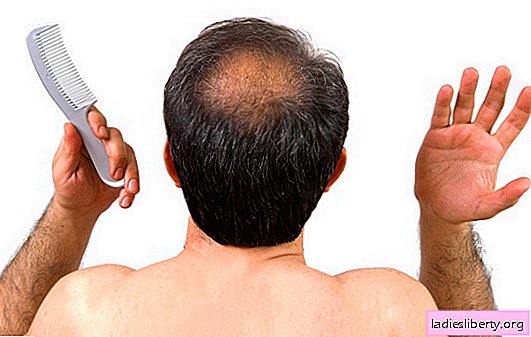
Hair loss is a burden for people of all ages. Lush hair is a desirable ideal of beauty for men and women. And yet, people all over the world suffer from hair loss. Hair and especially roots are often weakened. The reasons are different, so treatment should be selected taking into account the individual characteristics of the person.
What is hair loss?
The line between natural and treatment-related hair loss is greatly blurred. Each hair is constantly updated and goes through a cycle consisting of 3 phases:
- growth phase (anagen);
- transition phase (catagen);
- resting phase (telogen); after this phase, the hair falls out.
In the growth phase, the hair is supplied with nutrients through the root and grows fast. This part of the cycle takes about 2-6 years in healthy people. During the growth phase, cells are overly sensitive to external and internal factors.
In the transition phase, the hair ceases to receive nutrients, therefore, stops cell division. Then the hair enters the telogen phase, which lasts 2 to 4 months. At the end of the resting phase, the hair falls out and the cycle repeats.
Doctors talk about hair loss if, on average, more than 100 hairs disappear per day. The most common form of baldness is hereditary or androgenic alopecia. Other types of hair loss:
- circular;
- diffuse.
Hair loss develops in different ways:
- Inherited form: the later baldness occurs, the slower it progresses.
- Diffuse shape depends on the underlying disease. If the patient is cured, the problem of hair loss usually disappears quite quickly.
- Focal form can be very different. In some patients, hair disappears after a few months, and in others after a few years.
How common is hair loss?
The most common form is hereditary hair loss. 7 out of 10 men suffer from androgenetic alopecia throughout life. 4 out of 10 women with age also lose too much hair due to "bad" heredity.
Other forms of hair loss are much less common. About 1-2 out of every 100 people suffer from circular hair loss.
Diffuse hair loss is a rare occurrence compared to the hereditary form.
Hereditary hair loss
Due to the genetic predisposition, the hair follicles of patients react excessively to male sex hormones.
Over time, hair and hair follicles become thinner; they eventually “shrink” and fall out. Hair loss is caused by a "bad" hereditary in 95% of cases; in both men and women.
Causes of focal alopecia
The causes of focal hair loss are not fully understood. According to the current level of knowledge, the immune system attacks the hair follicles, so hair growth stops.
Circular hair loss occurs in some families. Therefore, it is believed that hereditary factors play an important role in the development of the disease.
With focal alopecia, people lose hair in certain places for a short time - from 2 months to 4 years.
Causes of Diffuse Hair Loss
With diffuse alopecia, the hair is thinned due to the underlying disease, but is evenly distributed throughout the head.
Main reasons:
- thyroid disease;
- insulin-dependent or non-insulin-dependent diabetes;
- improper, one-sided diet;
- Iron-deficiency anemia;
- hormonal changes;
- taking certain medications;
- irradiation;
- external circumstances are stress.
How to know in advance whether there will be a bald spot?
The easiest way to find out is to ask if your grandmother, grandfather, mom or dad suffered from baldness. The likelihood of baldness increases by 14 times if men have the corresponding "defective" genes.
It is impossible to predict the occurrence of diffuse alopecia, since it is not known whether a person will suffer from diseases that affect hair growth.
In the case of focal alopecia, the risk also depends on whether close relatives have suffered.
How to prevent hair loss?
It is impossible to prevent hereditary and round hair loss. Men just need to come to terms, because with the current level of medicine it is almost impossible to cure hereditary diseases.
Using a healthy and varied diet can help prevent diffuse hair loss due to poor nutrition.
Treatment for diffuse hair loss depends on the specific cause. The attending physician may recommend agents with active ingredients, such as minoxidil - 2% solution for use on the scalp.
When the root cause is eliminated, the hair begins to grow again. Therefore, with the diffuse form of baldness, it is recommended to treat the underlying disease, and not the symptom.











